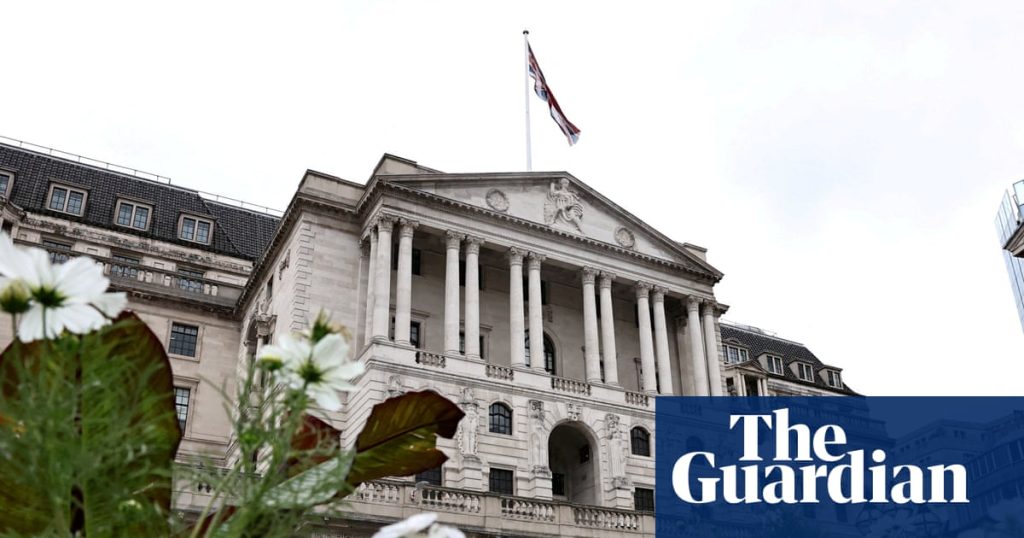A coalition of 10 campaign groups is calling on the Bank of England to do more to tackle the climate crisis, a decade after the then governor Mark Carney warned of the “tragedy of the horizon”.
Carney, now prime minister of Canada, argued in a speech at Lloyd’s of London in September 2015 that the short time-horizons of politicians and policymakers made it difficult to tackle the climate emergency, despite the threat it posed to the global financial system.
Carney said: “The combination of the weight of scientific evidence and the dynamics of the financial system suggest that, in the fullness of time, climate change will threaten financial resilience and longer-term prosperity. While there is still time to act, the window of opportunity is finite and shrinking.”
Ten years on, the environmental groups Greenpeace and WWF and the thinktanks the New Economics Foundation and Positive Money are among the signatories to a new briefing, calling on the Bank to take more decisive action. They urge Threadneedle Street to commission a review of monetary policy, given the increasing frequency of climate-related shocks that can push up food prices, for example.
Some economists have argued that central banks should be prepared to tolerate temporarily higher inflation, and even that governments should consider building up buffer stocks of staple foods to cushion the impact of price spikes caused by droughts or floods, which are becoming more common.
The briefing warns that by raising interest rates to respond to such price rises, the Bank increases the cost of the huge public investment needed to transition away from fossil fuels.
“The UK just experienced its worst inflationary crisis in four decades, triggered by fossil fuel price spikes and supply chain bottlenecks, which the UK’s monetary policy approach proved ill-equipped to address,” it says.
A Bank spokesperson said: “Whilst the government is responsible for climate policy, climate risk threatening our objectives is part of the Bank’s remits, and we work to take action accordingly.”
The Bank’s most recent monetary policy report, published as it cut interest rates by a quarter of a percentage point to 4%, acknowledged the upside risk to inflation if “extreme weather events due to climate change were to negatively impact food production”.
The campaigners are also calling on the Bank to ensure that climate risks are reflected in capital requirements for banks – the rules that determine what assets they must hold. And they would like to see the Bank discount fossil fuel-related assets when these are offered as collateral in its lending operations. The European Central Bank recently said it would take account of “climate-change related uncertainties” in valuing the assets it accepts in exchange for loans.
Sign up to Business Today
Get set for the working day – we’ll point you to all the business news and analysis you need every morning
Privacy Notice: Newsletters may contain information about charities, online ads, and content funded by outside parties. If you do not have an account, we will create a guest account for you on theguardian.com to send you this newsletter. You can complete full registration at any time. For more information about how we use your data see our Privacy Policy. We use Google reCaptcha to protect our website and the Google Privacy Policy and Terms of Service apply.
after newsletter promotion
Labour promised in its manifesto to reverse a decision by the Conservative government to prevent the Bank from taking the climate crisis into account in meeting its mandate.
In a letter late last year, the Bank’s governor, Andrew Bailey, sought to reassure the chancellor, Rachel Reeves, that the Prudential Regulation Authority, which oversees the banking sector, would “continue to consider how risks from climate change could impact financial stability”.
Since taking office in Ottawa, Carney has cancelled Canada’s carbon tax, and signalled that he wants the country to ramp up gas production, despite his previous anti-fossil fuel credentials.

